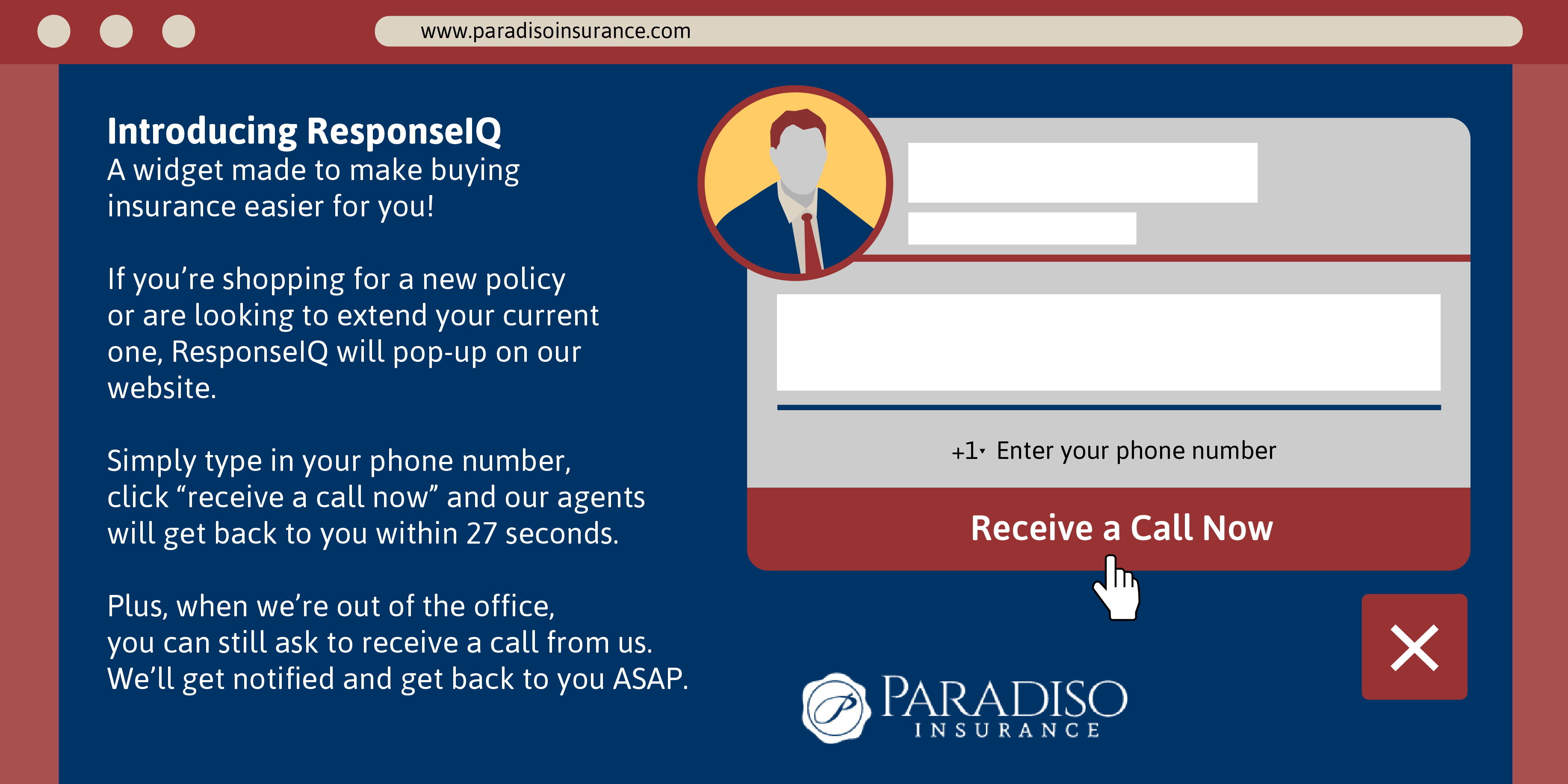In a recent study, it was discovered that for insurance agents, our number one issue is developing new business. Additionally, the study also pointed out that meeting client expectations, dealing with competition, and keeping up with technology were also common problems for insurance agents within our space. Have you ever asked yourself why this may be?
Well, I’ve got news for you; it all boils down to one simple fundamental. Within the independent insurance space, agents have been resilient to take on the modern marketplace in terms of approaching the customer experience. What does this mean exactly? Well, long story short, we are searching for new business in a way that won’t help us find new customers or develop relationships. Gary Vaynerchuk once said, “Saying hello doesn’t have an ROI. It’s about building relationships,” and he is absolutely right.
We need to build more relationships with our customers instead of simply saying hello, and a relationship starts with communicating on our customers terms, not ours. If your agency is still picking up the phone to make cold calls to develop new leads, you’re missing the ball here. Customers aren’t looking to be cold called about insurance, which is why our agencies aren’t fully dependent on outside sales folks anymore. Instead, customers are going online and doing their own searches or research to help their decision-making process when it comes to purchasing insurance. Instead of reaching out to them with a cold call, you just need to make yourself easy to find for when the prospects or potential leads come looking for your agency. In order to do that, we need to adapt; we have to allow new business to come to us.
The Customer Experience
Yes, it all boils down to the customer experience when it comes to attracting new business. If you can’t provide a customer experience that is up to par with your customers expectations, then you will be hurt by your competition. Competition could mean other agencies in the area, but it could also mean your carriers working around you. Think about it this way, if a carrier wants to make a new change to how they operate that will be better for their customers, and the agency/independent agent does not show them support, they will likely work around your agency and directly market to your customers and prospects to try to earn that business. In a world where carriers can adapt but independent agents cannot, we will fall behind. Don’t let this happen to you! To adapt, we have to make use of inbound marketing, which is essentially the process of educating your customers about your products/services online through the use of content marketing, social media, and SEO (search engine optimization).
Let’s go over a brief example of how inbound marketing can affect the customer’s buying journey. First, to make sure you are attracting the right clientele, we’d use a marketing persona to create targeted content to be delivered to the right audience. After that, we could write a blog that includes keywords or phrases that your audience will be searching for online, so that your agency comes up when they search for their keywords on Google. Once they discover your content online, they’ll have the ability to read and digest it, and if the content is delivered properly, they will likely call your agency to seek out your business.
This method of inbound marketing is critical for your agency. As we mentioned earlier, our customers and clients want to do their own searching and research instead of receiving a cold call. With this strategy, your agency becomes much easier to discover online, and therefore, will see more new leads in the process.
Additional Tools
 There are a few other tools that I’d like to mention that our agency makes use of to help the customer experience journey. Once people discover our agency’s website online, we’ve made it even easier to get on the phone with us through a tool that we use called ResponseiQ. With ResponseiQ, our clients and customers can put in their phone number into our form, and within 27 seconds, be on the phone with an agent from our agency. The folks at ResponseiQ handle connecting us, but this product really does work. Since we’ve implemented, we’ve seen an average of 8 calls per month coming in from this tool, and that’s pretty powerful considering that the majority of them are fresh leads. You should be easy to discover online, but even easier to get in touch with. And of course, we educate our customers and clients of these tools by spreading visuals like this one to our social media networks:
There are a few other tools that I’d like to mention that our agency makes use of to help the customer experience journey. Once people discover our agency’s website online, we’ve made it even easier to get on the phone with us through a tool that we use called ResponseiQ. With ResponseiQ, our clients and customers can put in their phone number into our form, and within 27 seconds, be on the phone with an agent from our agency. The folks at ResponseiQ handle connecting us, but this product really does work. Since we’ve implemented, we’ve seen an average of 8 calls per month coming in from this tool, and that’s pretty powerful considering that the majority of them are fresh leads. You should be easy to discover online, but even easier to get in touch with. And of course, we educate our customers and clients of these tools by spreading visuals like this one to our social media networks:

 Another thing I’d like to briefly mention is claiming your business on Google. Have you searched for your agency on Google recently? In the right hand side of the results, Google will display all of your agency’s information, including your physical address, phone number, hours of operation, reviews, etc. The point of claiming your business on Google is so that you can actually modify the information that Google shares in this sidebar with people who search for your agency online. This is powerful folks, because what if some of the information were wrong? Additionally, what if someone else searches for your agency, sees that it’s not claimed yet, and then claims it before you do? If you haven’t claimed your business on Google, make sure to get that done today. To get started, simply search for your agency on Google, take a look at the information on the right hand side, and then look for blue text that says “Own this business?” and click on it to get started.
Another thing I’d like to briefly mention is claiming your business on Google. Have you searched for your agency on Google recently? In the right hand side of the results, Google will display all of your agency’s information, including your physical address, phone number, hours of operation, reviews, etc. The point of claiming your business on Google is so that you can actually modify the information that Google shares in this sidebar with people who search for your agency online. This is powerful folks, because what if some of the information were wrong? Additionally, what if someone else searches for your agency, sees that it’s not claimed yet, and then claims it before you do? If you haven’t claimed your business on Google, make sure to get that done today. To get started, simply search for your agency on Google, take a look at the information on the right hand side, and then look for blue text that says “Own this business?” and click on it to get started.
Getting Started
This all may seem a bit overwhelming at first, so where exactly should you get started? Well, first things first, educate yourself and formulate an approach, one step at a time. If you decide you want to make your agency more discoverable through social media, then you could get started with Facebook. If you’re looking for stronger SEO, you could start with a blog. The important thing is that you should do one thing at a time, and stick with it. You can’t approach this with one foot in, and one foot out; you need to be all in for this strategy to work. Of course, this is a lot of additional work, so having the right staff, support, and delegation of tasks is important as well. I’d personally look into hiring a full-time marketing professional to help with implementing these tasks – someone who can be in the agency every day to experience your brand, as well as interact with your other staff and your customers as well. Remember, these things won’t become successful overnight, so have patience, and be sure to provide ongoing training/resources for your marketing professionals to focus on their ongoing success. If you’re still resilient, take the leap of faith! It’s time for agents to step into the modern world of bringing sales and marketing together through the power of digital marketing, and I’d hate to see anyone get left behind. Happy Marketing everyone!





